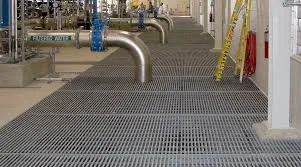
-
 Afrikaans
Afrikaans -
 Albanian
Albanian -
 Amharic
Amharic -
 Arabic
Arabic -
 Armenian
Armenian -
 Azerbaijani
Azerbaijani -
 Basque
Basque -
 Belarusian
Belarusian -
 Bengali
Bengali -
 Bosnian
Bosnian -
 Bulgarian
Bulgarian -
 Catalan
Catalan -
 Cebuano
Cebuano -
 China
China -
 China (Taiwan)
China (Taiwan) -
 Corsican
Corsican -
 Croatian
Croatian -
 Czech
Czech -
 Danish
Danish -
 Dutch
Dutch -
 English
English -
 Esperanto
Esperanto -
 Estonian
Estonian -
 Finnish
Finnish -
 French
French -
 Frisian
Frisian -
 Galician
Galician -
 Georgian
Georgian -
 German
German -
 Greek
Greek -
 Gujarati
Gujarati -
 Haitian Creole
Haitian Creole -
 hausa
hausa -
 hawaiian
hawaiian -
 Hebrew
Hebrew -
 Hindi
Hindi -
 Miao
Miao -
 Hungarian
Hungarian -
 Icelandic
Icelandic -
 igbo
igbo -
 Indonesian
Indonesian -
 irish
irish -
 Italian
Italian -
 Japanese
Japanese -
 Javanese
Javanese -
 Kannada
Kannada -
 kazakh
kazakh -
 Khmer
Khmer -
 Rwandese
Rwandese -
 Korean
Korean -
 Kurdish
Kurdish -
 Kyrgyz
Kyrgyz -
 Lao
Lao -
 Latin
Latin -
 Latvian
Latvian -
 Lithuanian
Lithuanian -
 Luxembourgish
Luxembourgish -
 Macedonian
Macedonian -
 Malgashi
Malgashi -
 Malay
Malay -
 Malayalam
Malayalam -
 Maltese
Maltese -
 Maori
Maori -
 Marathi
Marathi -
 Mongolian
Mongolian -
 Myanmar
Myanmar -
 Nepali
Nepali -
 Norwegian
Norwegian -
 Norwegian
Norwegian -
 Occitan
Occitan -
 Pashto
Pashto -
 Persian
Persian -
 Polish
Polish -
 Portuguese
Portuguese -
 Punjabi
Punjabi -
 Romanian
Romanian -
 Russian
Russian -
 Samoan
Samoan -
 Scottish Gaelic
Scottish Gaelic -
 Serbian
Serbian -
 Sesotho
Sesotho -
 Shona
Shona -
 Sindhi
Sindhi -
 Sinhala
Sinhala -
 Slovak
Slovak -
 Slovenian
Slovenian -
 Somali
Somali -
 Spanish
Spanish -
 Sundanese
Sundanese -
 Swahili
Swahili -
 Swedish
Swedish -
 Tagalog
Tagalog -
 Tajik
Tajik -
 Tamil
Tamil -
 Tatar
Tatar -
 Telugu
Telugu -
 Thai
Thai -
 Turkish
Turkish -
 Turkmen
Turkmen -
 Ukrainian
Ukrainian -
 Urdu
Urdu -
 Uighur
Uighur -
 Uzbek
Uzbek -
 Vietnamese
Vietnamese -
 Welsh
Welsh -
 Bantu
Bantu -
 Yiddish
Yiddish -
 Yoruba
Yoruba -
 Zulu
Zulu
fiberglass rectangular tank
The Advantages of Fiberglass Rectangular Tanks in Modern Applications
Fiberglass rectangular tanks are becoming increasingly popular in various industries due to their numerous advantages over traditional materials. These tanks are versatile, durable, and cost-effective, making them ideal for a wide range of applications, from agricultural storage to wastewater treatment. In this article, we will explore the features and benefits of fiberglass rectangular tanks, as well as the various sectors that can benefit from their use.
What is Fiberglass?
Fiberglass, or glass-reinforced plastic (GRP), is a composite material made from a polymer matrix reinforced by fine glass fibers. This combination results in a material that is lightweight yet exceptionally strong. The use of fiberglass in tank construction offers several benefits, particularly in terms of resistance to corrosion, impact, and temperature fluctuations.
Key Benefits of Fiberglass Rectangular Tanks
1. Corrosion Resistance One of the primary advantages of fiberglass rectangular tanks is their resistance to corrosion. Unlike metal tanks that can rust and degrade when exposed to moisture or harsh chemicals, fiberglass tanks can withstand a wide range of environments, making them suitable for storing various substances, including chemicals, wastewater, and even potable water.
2. Lightweight and Easy to Transport Fiberglass is significantly lighter than metal or concrete, which makes fiberglass tanks easier to transport and install. This weight advantage can lead to reduced shipping costs and simplified logistics, especially for larger tanks that would be cumbersome and expensive to move.
3. Customizable Designs Fiberglass rectangular tanks can be manufactured in various sizes and shapes to meet specific requirements. This customization allows for a perfect fit in various spaces, whether for industrial, agricultural, or residential uses. Manufacturers can also tailor the designs to accommodate different applications, such as adding baffles for improved fluid flow or integrating lids and access points for easy maintenance.
4. Cost-Effective Solution While the initial cost of fiberglass may be higher than some alternatives, the long-term savings on maintenance, repairs, and replacements make it a cost-effective investment. The durability of fiberglass also translates to lower life-cycle costs, as these tanks require less frequent replacement and can endure many years of use without significant wear.
5. Thermal Insulation Fiberglass provides excellent thermal insulation properties, helping maintain the temperature of the liquids stored within. This feature is particularly beneficial for applications that require temperature control, such as chemical processing or agricultural uses, where maintaining optimal temperatures can be critical.
fiberglass rectangular tank

6. Eco-Friendly Fiberglass is a sustainable material that can be recycled, reducing waste and environmental impact. Many fiberglass manufacturers are now implementing eco-friendly practices, further solidifying their commitment to sustainability.
Applications of Fiberglass Rectangular Tanks
Fiberglass rectangular tanks are utilized across various sectors, including
- Agriculture Farmers use fiberglass tanks for irrigation, water storage, and nutrient solutions for crops. Their resistance to corrosion and ability to hold various liquids make them ideal for agricultural applications.
- Wastewater Treatment Many wastewater treatment facilities rely on fiberglass tanks for clarifiers, aerobic digesters, and holding tanks. The corrosion resistance of fiberglass ensures longevity in harsh environmental conditions.
- Chemical Storage Industries that handle hazardous chemicals frequently opt for fiberglass tanks to ensure safe storage and compliance with environmental regulations.
- Fire Protection Fiberglass tanks are also employed in fire protection systems, storing water for emergency use. Their lightweight nature simplifies installation and reduces the structural requirements for tank support.
Conclusion
In conclusion, fiberglass rectangular tanks offer a multitude of benefits that make them an ideal choice for storing various liquids across diverse applications. Their unique characteristics, including corrosion resistance, lightweight nature, and customization options, help meet the demands of modern industries while providing cost-effective solutions. As more sectors recognize the advantages of fiberglass tanks, their usage is expected to continue growing, marking a significant shift towards more durable and sustainable storage options.









